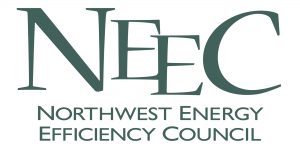The Washington Legislature is over half way through its session and dueling budget proposals (and the taxes that fund them) are emerging from House and Senate. The center circle under the circus tent remains funding for public education. Expect a continued long slog on that issue – and its ripple effect on spending for other initiatives. Not much is left in the outer rings of consideration related to policies effecting energy efficiency. One notable exception is the potential for continued capital budget allocations for the state’s energy efficiency grant program for public facilities. The Senate recently released its capital budget which contains $5M for the grant program. Honestly, it was a pleasant surprise. The Governor’s budget allocated $20M for grants and the House budget is expected soon. Bettor’s money is for a number somewhere between the two. After that, the negotiations begin. Given that no one has zero in their budget, there is reasonable hope that the grant program will continue at some level in the next biennium.
In Oregon, we are about 1/3 through the legislative session. On the energy efficiency front, there are a few bills of note. Earlier this month there was a hearing on Chair Ken Helm’s HB 2710 in the House Energy and Environment Committee. This legislation calls for the Department of Consumer and Business Services to develop policies regarding energy efficiency standards that ensure reductions in energy use in newly constructed buildings. We will see if the bill has a path forward in the next few weeks. As we see every year, there are a series of bills to gut the public purpose charge. These bills are up for a hearing next Monday in the Senate Business and Transportation committee. NEEC and our members will be providing written testimony against these bills. Finally, of note is the changes coming to the Oregon Department of Energy. During the 2016 interim, there was a bipartisan, bicameral workgroup to audit the department and make recommendations for potential legislative changes. Based on that process there are several bills to address those changes working through the legislature. There is consensus building around creating an energy and climate board with a number of stakeholders. NEEC is following this process and providing input. Oregon’s legislative session will go into late June.
